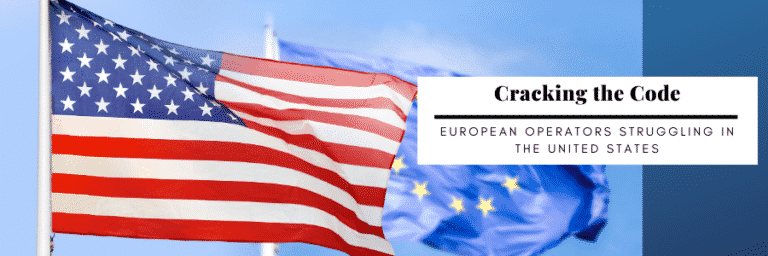Online Gambling Exists Whether It’s Legal Or Not

In a guest column, Corridor Consulting’s John Pappas provides a helpful reminder that the absence of legal online gambling doesn’t stop people from gambling online.
It was Sunday morning of Super Bowl LIV, miraculously, my kids were still asleep, and I thought it would be a good time to see what was buzzing on Twitter about the Big Game.
I hate when I do that.
More often than not, I am confronted with so-called “touts,” media pundits and average fans who all have a take on what team will cover and “can’t miss” prop bets. I don’t have to tell you, but Twitter is full of people who don’t know squat.
These opinions are easily forgiven, forgotten, and just not worth the characters to respond. But sometimes I come across a headline, a story or a hot take, that must be addressed. This is what happened when @NYDailyNews popped up on my timeline promoting their Super Bowl Sunday Editorial proclaiming that New York lawmakers should resist the “pressure to join the mobile betting party.”
Huh? Excuse me? Surely the editorial writers must know that New Yorkers have been partying with internet and mobile betting for the better part of two decades. Sports betting websites are easily accessible, and they operate in spite of New York lawmaker’s inaction, out of the reach of New York law enforcement and without any accountability to New York bettors.
Not understanding this reality is one thing, but promoting it is quite another. Perhaps the editors missed the Daily News story posted just a week before the Super Bowl showcasing various prop bets available through an unregulated online sportsbook – the story even links directly to that sportsbook. Or the fact that every day their online news site promotes sports wagering odds from a variety of offshore sportsbook operators.
So, excuse me for spitting out my coffee when I read their take. But you shouldn’t be complaining about New York getting into the legal “mobile betting party” when you are sending out invites to an illegal one.
I remember testifying to Michigan lawmakers in early 2017 in support of legislation to license and regulate internet poker and casino gaming. My computer was connected to the internet and projecting on screens throughout the hearing room. I pulled up my web browser and typed, “Can I play online poker in Michigan?” In seconds, I was directed to a myriad of websites not only telling me that real-money online poker was completely legal but also reviews of the “Top Gambling Sites for Michigan Residents” and instructions on how to set up and fund my “totally legal” account! As you can imagine, it got the lawmaker’s attention. Even still, it took 3 more years, and a Governor’s veto, to get it right in Michigan.
For those who live and breathe these issues, it’s easy to forget that for most policymakers, internet gambling and sports betting, are something they think about only when they have to. So, if you are a lawmaker in a state like Kentucky, which has traditionally opposed any form of gambling, it is very easy to put your head in the sand and simply say “we shouldn’t allow people to bet on their phones or computers.”
It’s almost as if lawmakers who are reflexively opposed to regulated gambling have what I call Captain Renault Syndrome. In the movie Casablanca, Captain Renault famously shuts down Rick’s Café and exclaims, “I’m shocked, shocked to find that gambling is going on in here” and then discretely collects his winnings.
Politicians are waking up to the reality and shedding the illogical position that opposes regulated gambling, in favor of the status quo – unregulated gambling. With the popularity of sports betting leading the way, more and more states are adopting policies to turn internet gambling black markets into legal ones.
But we have a way to go to educate the media and lawmakers about the breadth of unregulated and untaxed internet gambling currently available to U.S. consumers. If they understand that it is already at American’s fingertips, then maybe, just maybe, they will begin to understand that efforts to legalize sports betting or poker, isn’t about expanding gambling or creating addiction, it’s about corralling unregulated internet gambling and making it safer and accountable for everyone.
John Pappas is the founder of Corridor Consulting. For more than 13 years he has been an advocate for regulated internet gaming in the United States.
John Pappas has more than two decades of government relations, public affairs, and strategic communications experience. During this time, he has developed and executed lobbying, public relations and grassroots campaigns on the state and federal levels, with an emphasis on delivering positive policy outcomes for the technology and gaming industries.
His diverse professional background allows him to understand the policy-making process from every angle.







